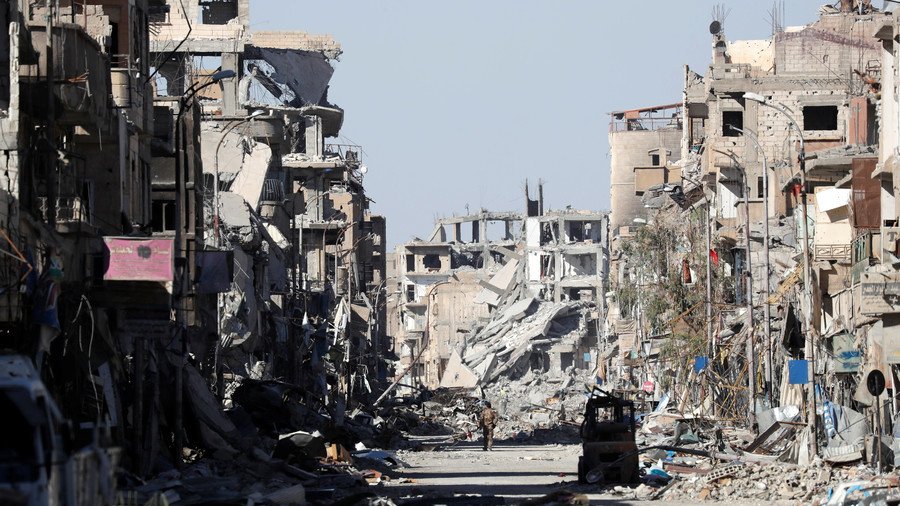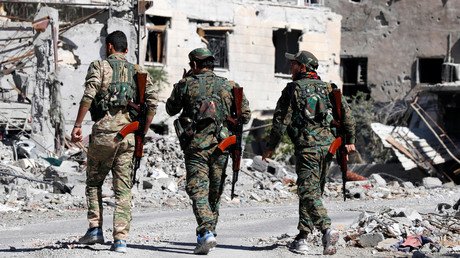‘Thousands of rotting corpses’ under ruins of Raqqa a public health crisis – Russian MoD

The Russian Defense Ministry has criticized the Western-led coalition for creating a sanitation emergency in Raqqa after it took the Syrian city from Islamic State, but failed to organize a clean-up or rebuild.
"The epidemiological situation in Raqqa remains very grave. There are still thousands of corpses rotting underneath the debris,” said Russian Ministry of Defense spokesman Igor Konashenkov, during a press briefing in Moscow.
The official outlined the difference between the reconstruction efforts in cities taken back by government forces, such as Aleppo, where “schools, hospitals and markets have reopened” and those like Raqqa, which have largely been left to their own devices.
Over two-thirds of Raqqa, the city Islamic State (IS, formerly ISIS) once designated its unofficial capital, was destroyed during a four-month battle that ended in October 2017. The majority of the damage, according to Konashenkov, was inflicted by US airstrikes on the city, which was previously home to around 300,000 people and is now under the loose control of Kurdish militias.
Members of the first UN Humanitarian Mission sent to the city in recent weeks wrote that they “were shocked by the level of destruction, which exceeded anything they had ever seen before.” Noting that “public services barely exist and there is no safe water or electricity,” the mission was alarmed by “widespread presence of explosive hazards, including unexploded ordnance, landmines and improvised explosive devices,” abandoned by Islamic State, and a cause of over 130 deaths between October 2017 and February 2018.
A location report from AP, published last week, said that only one bulldozer was available for excavating bodies, and that “the stench of death rises from crushed buildings” as insects swarm the streets. Locals also told the newspaper that violent crime goes unchecked, and that former IS militants are allowed to live freely among the population.















